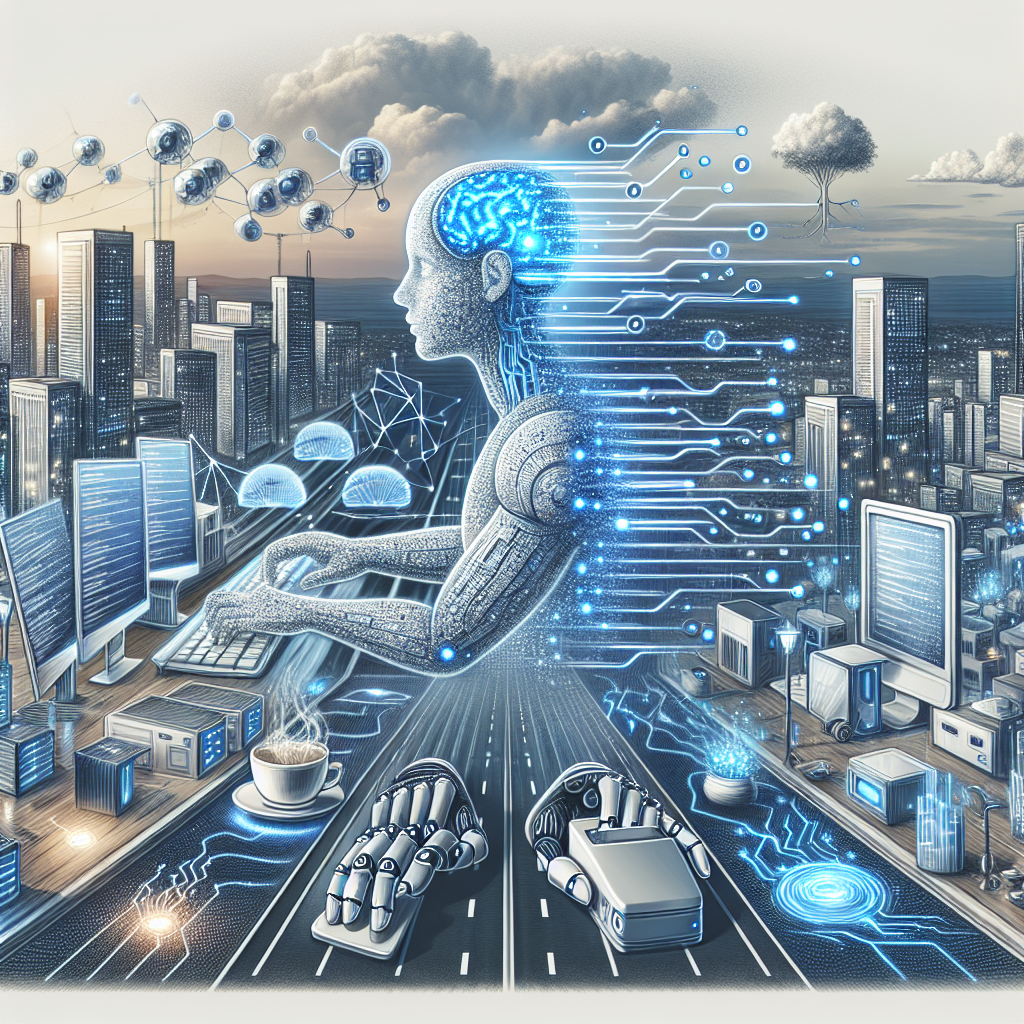Generative artificial intelligence (AI) has been making waves in the tech industry in recent years, revolutionizing how software is developed and reshaping the role of software developers. This cutting-edge technology has the potential to significantly increase productivity by automating certain aspects of the software development process. However, this advancement has also sparked concerns about the future of software developer roles as some fear that AI could potentially replace human workers in the field.
Generative AI refers to a type of AI that is capable of creating content, such as code, images, or music, on its own without explicit human input. One of the most well-known examples of generative AI is OpenAI’s GPT-3, a language model that can generate human-like text based on a prompt. In the context of software development, generative AI can be used to write code, test software, or even design user interfaces.
The use of generative AI in software development has already had a notable impact on productivity. By automating routine tasks such as code writing, testing, and debugging, developers can focus on more complex and creative aspects of their work. This can lead to faster development cycles, reduced time-to-market, and ultimately, a more efficient and productive software development process.
However, the rise of generative AI has also raised concerns about the future of software developer roles. Some fear that as AI becomes more advanced and can handle more complex tasks, there will be less demand for human developers. This could potentially lead to job losses in the industry and a shift in the skill sets that are valued in the field.
Despite these concerns, many experts in the industry believe that generative AI will not replace software developers entirely, but rather augment their capabilities. AI can help developers be more productive and efficient, allowing them to focus on higher-level tasks that require human creativity and problem-solving abilities. In this sense, generative AI can be seen as a tool that complements human developers rather than replaces them.
Furthermore, the adoption of generative AI in software development can create new opportunities for developers to specialize in areas where human expertise is still required. For example, developers can focus on designing and implementing AI algorithms, overseeing the AI systems, and ensuring that they are ethical and responsible.
In conclusion, generative AI has the potential to revolutionize productivity in software development by automating routine tasks and allowing developers to focus on more creative and complex work. While there are concerns about the impact of AI on software developer roles, many believe that AI will not replace developers entirely but rather enhance their capabilities. By embracing generative AI as a tool to augment their skills, developers can adapt to the changing landscape of the industry and continue to drive innovation in software development.

